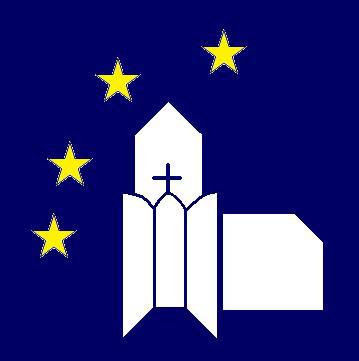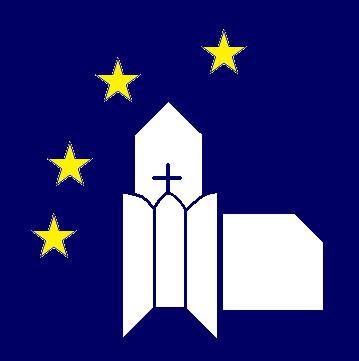 |
EUROPEAN NETWORK – RÉSEAU EUROPÉEN 26th Annual Conference of the European Network
|
ATELIER AFRIQUE was created by Gérard Warenghem, a Spiritain missionary who worked for 20 years in Gabon until he had to return to France for health reasons. He was also the founder of the Ngo PARTENIA 2000 which welcomed Bishop Jacques Gaillot when he was forced to leave his diocese of Evreux for his proximity to the poor and needy.
ATELIER AFRIQUE has been, simultanously, the permanent Africa workshop in the annual conferences of the EN-RE, a blog and a list of email addresses for the members of EN-RE and persons affiliated to the JEC (Jeunesse étudiante chrétienne). Gérard died before being able to transfer the passwords to anyone in Partenia. As a result, the blog is defunct and although the list of email addresses works, no name can be added or removed.
Now, in our Strasbourg Conference, we should reflect on how to revitalise the mailing list and the blog, perhaps possibly via our website www.en-re.eu .
Atelier Afrique and « Publish what you Pay (PWYP) »
Hugo Castelli comments: I made my first contact with Publish What You Pay in ATELIER AFRIQUE when I went to the Brussels Conference of the European Network in 2003 as an observer for « Cristianas y Cristianos de Base de Madrid (CCBM) ». I then negotiated the affiliation of the Comisión de Movimientos Sociales (MMSS) of CCBM in PWYP London.
PWYP members can receive emails sent by member coalitions from all over the world. Over several years I made a monthly summary of these emails and sent them to my colleagues in MMSS and to ATELIER AFRIQUE.
In the course of this correspondence, I received from Oxfam Australia information about the concept of FPIC (Free Prior Informed Consent), namely the right of indigenous peoples to receive full details of industrial projects that can affect their livelihood before they give their consent to the construction of the industrial installations. It is a right recognised by the UN.
When the European Parliament approved the Accounting and Transparency Directives and demanded their mandatory incorporation into the legal framework of the 28 EU member States, PWYP London asked me to locate the corresponding Spanish ministries concerned with the transpositions of these directives into Spanish Law and which now form part of the legislation in the UK, France, Germany, Spain, etc.
They oblige multinational extractive industries (Oil & Gas, Mining & Primary Forests) to make annual declarations concerning the payments they make to the foreign governments where their industrial installations are located when these payments, on a country by country basis, add up to a total in excess of 100.000 Euros.
The Accounting Directive affects corporations domiciled in an EU State and the Transparency Directive concerns non-EU domiciled corporations whose shares, etc., are quoted on EU stock exchanges.
This information about payments to foreign governments is specially important for civil society NGOs in Third World countries so they can fiscalise the revenues of their governments, prevent fraud and compare the levels of payments with the importance of the installations.
Following the green light of the Coordination Group, Hugo Castelli affiliated EN-RE as a member group of PCQVP (Publiez ce que Vous Payez). There was no expense involved but we have noted a certain expression of rebuff by PCQVP Paris which intimated that EN-RE was not sufficiently focussed on the financial matters of the Accounting & Transparency Directives. Consequently, I have asked our colleagues in PARTENIA 2000, which is also affiliated to PCQVP France, to inform us during the Conference about the operation of PCQVP in France.
Atelier Afrique and the Conference of INGOs of the Council of Europe
When Hugo Castelli took part in the AGM of Parvis in Lille in November 2013, as a delegate of Redes Cristianas, he took the floor briefly to discuss PWYP and FPIC. François Becker invited him to present a proposal for a working group (WG) in the COING (Conference of accredited international NGOs) of the Council of Europe.
The proposal was presented and accepted by the COING at the end January session of 2014 with the title Human Rights, Co-development & Migrations and from then on a series of quarterly meetings of our WG began. Hugo Castelli expanded the scope to include Latin America since most of the Spanish members of EN-RE are not fluent in English and French. Then our assistant coordinator, Marie-Christine Davy, insisted we also included Asia. Thus the work of our WG covered Africa, Latin America and Asia but also the 47 member States of the Council of Europe.
Thanks to the teamwork of EN-RE's Europe Group and the 40 odd members of our WG, a recommendation text was developed by François Becker with the assistance of the legal experts of our WG : Jean-Bernard Marie and Grégory Thuan Dit Dieudonné. The final version of our recommendation can be found in French and Spanish on our website www.en-re.eu. The English version will be translated by the official services of the COING. The French version of our recommendation has been approved by the Permanent Committee our recommendation has been approved by the Permanent Committee of the COING and will be presented for approval by the Human Rights Committee and for adoption by the plenary session of the COING in June 2017 as explained in Fernand Jehl's Report on EN-RE's presence in the Council of Europe and which can be found on our website in French, English and Spanish.
In order to increase the awareness of the INGOs, the WG organised a very successful « Side Event » following Robert Simon's work with Alice Bordaçarre of Action Aid – Peuples Solidaires. You can read the reports in French, English and Spanish in www.en-re.eu
The activities of Fernand Jehl and Hugo Castelli concerned the coordination and transmittal of documents to members of the WG and to the president and the two vice-presidents of the Human Rights Committee as well as with the president of the COING.
Summing up, the aim of our WG was to show that if multinationals had a greater respect for Human Rights and distributed a reasonable proportion of their profits in the countries where they work (Co-development) there would be less requirement for economic emigration towards Europe. Our objective was backed up by the recommendation of the Committee of (Foreign Affairs) Ministers (ambassadors of the 47 member States) Human Rights and Business of 3rd March 2016. It consists of 70 non-binding recommendations and Hugo Castelli, with the help of his wife, Mercedes Cirera, translated it into Spanish and his translation has been used by the Spanish Ministry of Foreign Affairs in Spain. You can read the recommendation on our website www.en-re.eu, in French, English and Spanish.
An important work for European Network members is to convert these 70 voluntary recommendations into binding laws in our member countries.
The president of the COING has assured us that the work of our WG will be continued, after adoption, under another format in the Council of Europe and we will advise you when we know more.
I now invite you to share in the ATELIER AFRIQUE meeting, the social work of your organizations for God's Kingdom in your countries.
Robert Simon has written:
I work to improve franco-african relations in, at least, 4 levels :
- « I am a member of the Board of Directors of Orphelins Sida International which sponsors orphan children primarily in Africa ;.
- I am president of Solidarité Internationale LGBTQI and we try to mobilise funds to support the African LGBT movement (especially in the francophone countries)
-At the Ligue des Droits de l'Homme I have called for the creation of a working group on international relations and I follow the dossier on « the social responsibility of multinationals »
- In my section of the Paris centre of the LDH Paris, I support the activities on the question of franco algerian rleations and I work for the association of former called-up soldiers against war. « Retour en Algérie » presents this association. It would be good to see information about this association in the Parvis periodical .
The Comunidad de Santo Tomás de Aquino, to which Hugo Castelli belongs:
is a member of the Comisión Etica - Comisión Intereclesial de Justicia y Paz of Colombia
- A group of its members prepares breakfasts every school day for young Roma children in the Gallinero of the Cañada Real Galiana district in the poorest Madrid suburbs before they take the school bus. The children live with their parents in converted chicken coops.
- It finances self-managed projects in Ecuador, Congo RDC, Mozambique, etc
- and its members participate in or have contacts in :
- the Madrid-based Universidad Carlos III's course for indigenous peoples' activists
- Senda de Cuidados
- Umoya, Comités de Solidaridad con Africa Negra
- Asociación KARIBU,
- the African Parliament of Parla of African descendants
- Kwanzaa Asociación Afrodescendiente Universitaria
- Trabajadores Sociales Asociados TRASS, etc
Redes Cristianas is affiliated to the Plataforma por la Justicia Fiscal which incorporates Oxfam Intermon, Attac, trades unions, the Gestha association of tax inspectors, Justice & Peace, Economistas sin Fronteras, etc. Its aim is to close down offshore tax havens and modify the Spanish taxation system to increase the rates of effective taxation on large corporations and the wealthy.
Hugo Castelli believes that a new WG called « Close the offshore tax havens to finance the European Social Charter » could be well received in the COING, and appreciated by the regular members of our former WG which has now closed down since it has finished its work. Robert thinks it is better to leave this question to the specialist NGOs but these organizations do not belong to the COING and the Plataforma is a specialist organization where Hugo Castelli is delegate for Redes Cristianas in the Plataforma.
So here is another topic for ATELIER AFRIQUE
20/5/2017 Hugo Castelli Eyre,
Member of the Secretariat & Coordination Group,
+34 629 875 548
